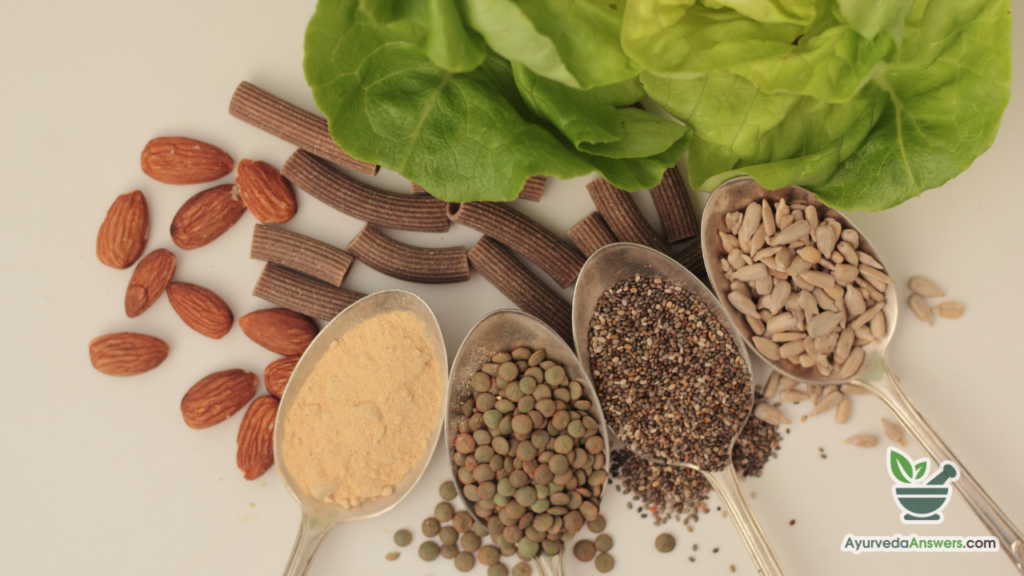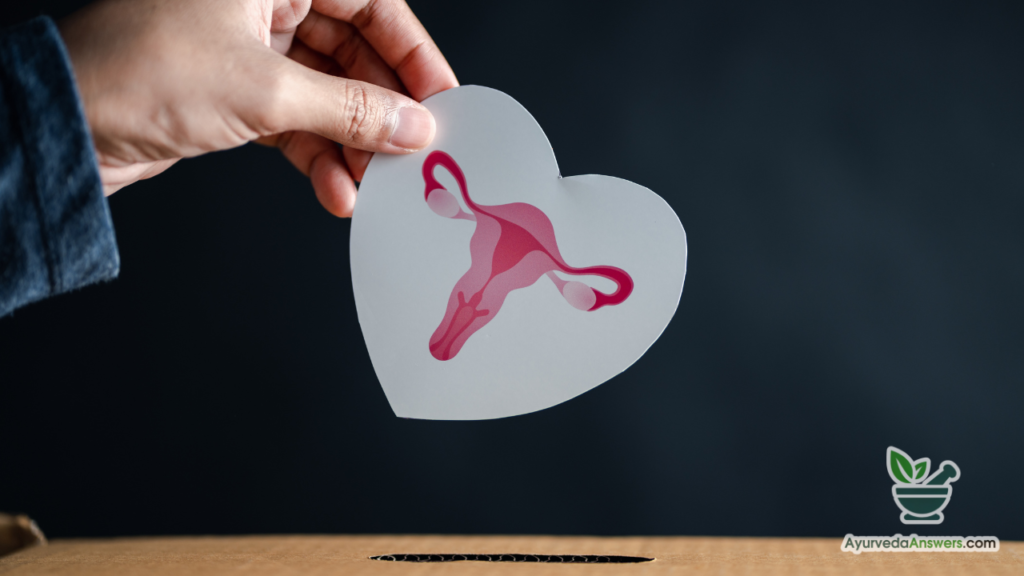Polycystic ovarian syndrome (PCOS) and polycystic ovarian disorder (PCOD) are two commonly diagnosed gynecological endocrine disorders affecting 5-10% of women of reproductive age worldwide. 👩⚕️ They are emerging as major health concerns with rising prevalence due to modern lifestyles.

In PCOS and PCOD, multiple small fluid-filled sacs or cysts form in the ovaries leading to hormonal imbalance and menstrual irregularity as prominent signs. 🏥 Other common symptoms include excess body and facial hair growth, acne and weight gain. Infertility also becomes a major issue for some women.
While they share similar names and symptoms, PCOS is a more severe, progressive manifestation compared to PCOD in terms of metabolic complications and long-term health risks. Let’s understand them in detail along with Ayurvedic perspectives on holistic healing. 🤔
Defining PCOS vs PCOD

Polycystic Ovary Syndrome (PCOS):
- 🩺 Multiple cysts surrounding egg-containing follicles in ovaries
- 🤰 Highly irregular or absent periods
- 👱 Excess androgen production causing hirsutism (excess body/facial hair)
- 🤰 Infertility problems
- 🙎 Persistent acne, oily skin and dandruff
- 🧖 Rapid weight gain and difficulty losing weight
- ❤️ Anxiety, depression and emotional turmoil
- 🔬 Increased risk for diabetes, heart disease and uterine cancer
Polycystic Ovary Disorder (PCOD):
- 🩺 Multiple small cysts in the ovaries (>12 follicles per ovary)
- 🤰 Mildly irregular periods
- 🤰 Mostly regular ovulation each month
- 🧖 Moderate unexplained weight gain
- 🔥 Tends to progress into full blown PCOS if left untreated
While symptoms may overlap, PCOS signifies deeper metabolic complications like insulin resistance and long-term health consequences compared to PCOD. 📉 If PCOD persists unchecked for years, the tendency for PCOS development runs high.
Causes of PCOS and PCOD 🤔
The exact causes remain unclear but involve a complex interplay of factors:

- 👩 Genetics – Family history of PCOS elevates risk
- 🍔 Obesity and high BMI
- 🍼 Excess androgens – Male sex hormones
- 🧠 Abnormal pituitary signaling
- 🧬 Insulin resistance
- ⛅ Vitamin D deficiency
- 😖 Chronic stress
- ⏰ Disrupted sleep patterns
These contribute towards disturbing the female endocrine system.
Ayurvedic View of PCOS and PCOD – Samprapti 🤯
According to Ayurveda, both PCOS and PCOD (termed Granthi Roga or ovarian cysts/growths) arise primarily from imbalanced doshas – especially Kapha, Pitta and Vata.

- 🤔 Initially poor diet, erratic lifestyle and lack of self-care ruins Agni (digestive power) to create malnutrition. This also weakens female reproductive capability at a tissue level.
- 🔥 Unmanaged mental stress overloads Pitta dosha. Pitta governs hormones and metabolism which further cascades issues.
- 🤰 Repeated anovulation causes depletion of Artava dhatu (female reproductive essence).
- 🩸 Vitiation spreads into adjoining channels or srotas like the rasa (nutrient plasma), rakta (blood), mamsa (muscle) and meda (fat) eventually congesting the reproductive organs.
- 👎 Toxins or Ama accumulate, triggering formations of benign cysts or non-cancerous tumor growths in PCOD which matures into more complex PCOS pathology over time due to aggravated doshas, dhatu shaithilya (tissue laxity) and srotorodha (channel blockages).
Ayurveda targets early intervention using herbs, cleansing routines and yogic lifestyle while addressing emotional health for optimal healing. 👍
Root Cause Management Using Ayurveda🌱

- Customized Diet and Routine: Balancing doshas begins with partaking sattvic (pure), nutritious, easy-to-digest foods while following an early sleep schedule, staying active and avoiding stress for hormonal harmony.
- ✅ Low GI or PCOS-friendly diet with anti-inflammatory foods – lean proteins, high fiber whole grains, greens, berries
- ✅ Avoid – refined/fried/sugary foods, alcohol, excess caffeine 🍟🍕🍔
- 👌 Regularity in meal timings and sleep-wake cycles
- Herbal Support: Disease specific herb combinations prescribed alter hormonal output, metabolize excess androgens, enhance fertility, assist healthy weight management, remove amenorrhea while regulating ovulation, menstruation and insulin sensitivity.
- 💊 Key herbs: Shatavari, Ashoka, Turmeric, Tinospora, Methika, Kumari
- 🌰 Combining targeted PCOS herb formulas enhances healing scope.
- Detoxification: Customized Panchakarma detox techniques like Udwarthana powder massage, Vasti and Virechana eliminate deep-seated toxins or Ama from tissues promoting lightness, health and harmony in the reproductive system.
- Yoga and Exercise: Special PCOS-reversing yoga flows enhance insulin and testosterone metabolic effects while stimulating ovarian and pelvic function. Stress undoing asanas balance key hormones including prolactin, LH, FSH and estrogen levels. Adding regular cardio exercises aids sustainable weight loss and maintenance.
- Emotional Care: Chronic anxiety/stress and pent up negative emotions being key culprits, conscious emotional healing is vital through mind-body techniques like mindfulness, counseling, spiritual connectivity and creative arts. By embracing a positive, balanced state of mind free from resentment or overthinking, PCOS symptoms naturally diminish.
Thus, Ayurveda offers PCOS reversal through aligning key lifestyle factors and consciousness alongside herbal supplementation and focused cleansing therapies for holistic healing. 💖

In summary, PCOS and PCOD arise from an interplay of lifestyle, genetics and emotions that disturb delicate female hormonal balance.
Ayurveda treatment focuses on addressing the root issue for restoring reproductive wellbeing gently yet effectively. Adopting Ayurvedic living paired with targeted therapies nurtures the body, mind and inner joy for holistic wellbeing.✨
Ayurveda urges us to reconnect with nature’s innate intelligence for optimal health including female reproductive balance.
Disclaimer : The techniques described in these articles are not intended as substitutes for professional medical advice or treatment. Consult a physician before trying any new health treatment. Do not stop or change prescribed medications without consulting your healthcare provider. The information provided is for educational purposes only. Results will vary based on individual factors. Always rely on the guidance of a qualified medical professional for any health concerns.
Read Our Latest Articles:
- Ayurveda for Disc Bulge: Finding Relief Naturally
- Ayurveda for Alopecia Areata: Nurturing Hair Health Naturally
- Ayurveda for Asthma: Breathe Easy with Natural Solutions
- Ayurveda for Melasma: Embracing Natural Solutions for Clear, Radiant Skin
- Ayurveda for Dampness in the Body: Embracing Balance and Vitality
Leave a Reply